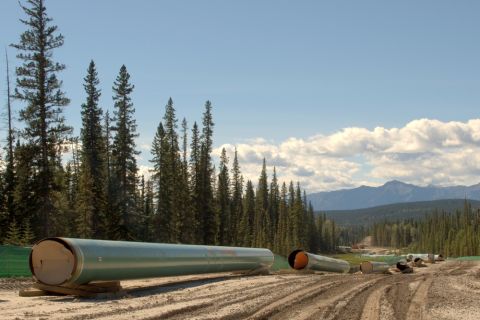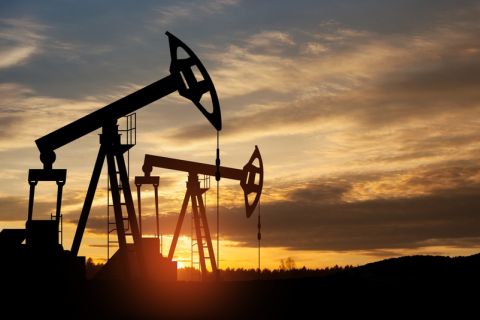The tug of war between E&Ps producing affordable energy and environmentalist groups who want to turn all fossil fuels off never fully draws either side over the line.
To the broader public, however, the need for energy to maintain a high standard of living is apparent. But a March 6 Gallup poll found that 64% of respondents worry a “great deal” or “fair amount” about global warming, up sharply from 53% in 2015.
How companies chose to handle these concerns could lead to stronger public relationships or public relations nightmares. You don’t have to do too much digging through media reports to find examples of the latter.
The latest involves protests against the 1,172-mile Dakota Access Pipeline (DAPL), which would transport light sweet crude from North Dakota’s Bakken Shale and Three Forks areas to Gulf Coast refineries. The Energy Transfer Partners-led effort received a federal judge’s approval for construction to proceed; however, that was later overruled by other federal authorities amid continued opposition from environmentalists and members of the Standing Rock Sioux tribe, who fear oil spills or damage to sacred Native American sites.
Initially, Dakota Access remained silent about the protests.
Energy Transfer previously has said the pipeline allows crude to be transported in a “more direct, cost-effective, safer and environmentally responsible manner,” reducing “current use of rail and truck transportation.”
Since then, protestors and private security personnel at the DAPL construction site have clash, leading to injuries and property damage. Amid ongoing tensions, construction equipment was reportedly intentionally set on fire Oct. 17. This incident happened less than a week after protestors are said to have shut down several pipelines after breaking into fenced enclosures and cutting locks. Industry officials have called the act a dangerous stunt that could have led to oil spills.
RELATED: Dakota Access Pipeline Protests Erupt In Violence
RELATED: Suspected Arson Damages Dakota Access Pipeline Equipment
It is deeply troubling to see that some are using such tactics—carrying out potentially dangerous acts that put lives at risk. While hundreds of meetings led up to the approval of the pipeline, clearly more discussion is needed.
Opposition groups have repeatedly squared off with energy companies, fearing water pollution and despoiled wilderness areas. These have involved:
- The use of hydraulic fracturing both in the United States and abroad;
- Drilling in the Arctic; and
- Seismic activity in the Atlantic.
That’s where the concept of a company’s social license to operate (SLO) comes in. The license essentially builds up trust in the community and actively promotes its activities to influence public perception of an operator..
Nathan Meehan, the 2016 SPE president, said in a column that “legitimacy and credibility lead to acceptance of a project at-large to rise to the level of approval.”
And it must be earned and maintained.
To get there, operators and contracts must communicate openly, deliver or promises and provide benefits to the community. Upstream oil and gas companies should take heed, especially as a contingent of protesters has apparently become more militant.
Gaining a SLO is needed to earn and keep the community’s trust, and “failure to do this can lead to conflict, delays, added costs, or even prohibition of projects,” Meehan wrote, noting perceptions are subject to change. So assessing a SLO takes continuous effort.
“Each community has specific issues and interests that form the basis for relationship building between it and the project operator. As a prerequisite for SLO, the operator should map and understand the social structure, issues, and vision of the various individuals, groups, and organizations that form the community,” Meehan wrote. “Confidence in the status of a social license requires measuring it periodically and using the results to modify practice to improve the quality of the relationship between the project and the community.”
While it is true that a company’s efforts may be met with resistance at every turn, regardless of the benefits, it helps to clearly communicate, listen and respond accordingly.
Velda Addison can be reached at vaddison@hartenergy.com.
Recommended Reading
US Refiners to Face Tighter Heavy Spreads this Summer TPH
2024-04-22 - Tudor, Pickering, Holt and Co. (TPH) expects fairly tight heavy crude discounts in the U.S. this summer and beyond owing to lower imports of Canadian, Mexican and Venezuelan crudes.
Oil Broadly Steady After Surprise US Crude Stock Drop
2024-03-21 - Stockpiles unexpectedly declined by 2 MMbbl to 445 MMbbl in the week ended March 15, as exports rose and refiners continued to increase activity.
US Gulf Coast Heavy Crude Oil Prices Firm as Supplies Tighten
2024-04-10 - Pushing up heavy crude prices are falling oil exports from Mexico, the potential for resumption of sanctions on Venezuelan crude, the imminent startup of a Canadian pipeline and continued output cuts by OPEC+.
Imperial Expects TMX to Tighten Differentials, Raise Heavy Crude Prices
2024-02-06 - Imperial Oil expects the completion of the Trans Mountain Pipeline expansion to tighten WCS and WTI light and heavy oil differentials and boost its access to more lucrative markets in 2024.
What's Affecting Oil Prices This Week? (March 25, 2024)
2024-03-25 - On average, Stratas Advisors are forecasting that oil supply will be at a deficit of 840,000 bbl/d in 2024.




